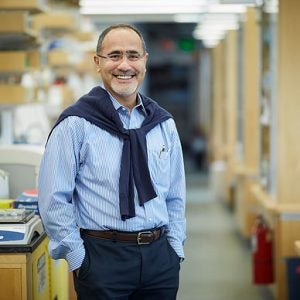Director, Sabri Ülker Center for Nutrient, Genetics and Metabolic Research
James Stevens Simmons Professor of Genetics and Metabolism
Faculty Affiliate in the Department of Nutrition
Associate Member, Broad Institute Harvard/MIT, Harvard Stem Cell Institute
My laboratory studies metabolic homeostasis and the mechanisms underlying clusters of chronic non-communicable diseases that have become the greatest threats to global human health. These include obesity along with type 2 diabetes, airway disease, atherosclerosis, neurodegeneration, and cancer with a particular interest in exploring the integration of immune and metabolic responses to support health or cause disease. We have discovered and characterized chronic metabolic inflammation and its drivers, stress signaling and adaptive systems, and the key roles of lipid metabolism and lipid chaperones in several metabolic and inflammatory disorders. Our lab also explores the interface of these systems with the sensing and adaptive devices of the cell with a heavy focus on the metabolic and immunometabolic biology of the endoplasmic reticulum (ER).
Our studies in the past two decades also uncovered dysfunction of the ER as a central component of metabolic adaptation in health and maladaptation in disease. We also systematically explored the mechanisms leading to ER dysfunction under metabolic stress and identified molecules that are critical for the metabolic functions of the ER, such as the role of the ER-bound transcription factor Nrf1, in defending against cholesterol toxicity and the role regulated proteasome activity through this factor in metabolic adaptations. These systems allow us to explore how nutrient and lipid signals are controlled and linked to adaptive responses and endoplasmic reticulum function and define functional outcomes in metabolic, inflammatory, and survival contexts in cells and organisms. Finally, we pursue genetic and chemical biology avenues to produce translational opportunities against chronic disease.

